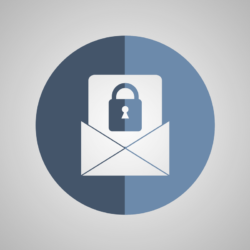
What is Email Encryption?
Your information is important, and it needs to be protected. Emails are one of the easiest things to hack, since the files are transferred from one computer to another through the Internet. Your emails are typically secure enough for your business. However, when it comes to extremely sensitive information like a client or patient’s personal information, email encryption is a good idea (and sometimes, it’s even necessary to conform to regulations like HIPAA).
Emails can be encrypted by software like Trend Micro or other antivirus programs in order to make the content unreadable unless a person enters in a password or other authentication key. It protects your email from being read by an unwanted party like a hacker.
How Does Email Encryption Work?
Encryption starts with a mathematical equation. Your email’s content is run through a program which alters the text into a series of numbers and letters that is completely illegible without the proper key. If using a trusted source of encryption (and not the free versions often found online), this alteration will be unique to your email. That means that even if a hacker solves the mathematical equation for one email, it is unlikely that they could solve it for all of them. Once the email has been encrypted, you send it to the recipient using a public key. The public key is the recipient’s email address, just as your public key is your email address. To unencrypt the email, the recipient must use their private key, which is typically a password or other form of authentication. The public key is shareable with others (how else would you send an email?), but the private key is kept a secret. Treat your private key like you would any other password—it’s not for sharing!
Remember: email encryption doesn’t protect you from hackers gaining access to your hard drive and reading these files before they are encrypted. In order to keep yourself protected, you must have strong passwords, knowledge of social engineering, and a good antivirus software. If your computer has been compromised, data and files can be examined right off your hard drive or your cloud storage account.



